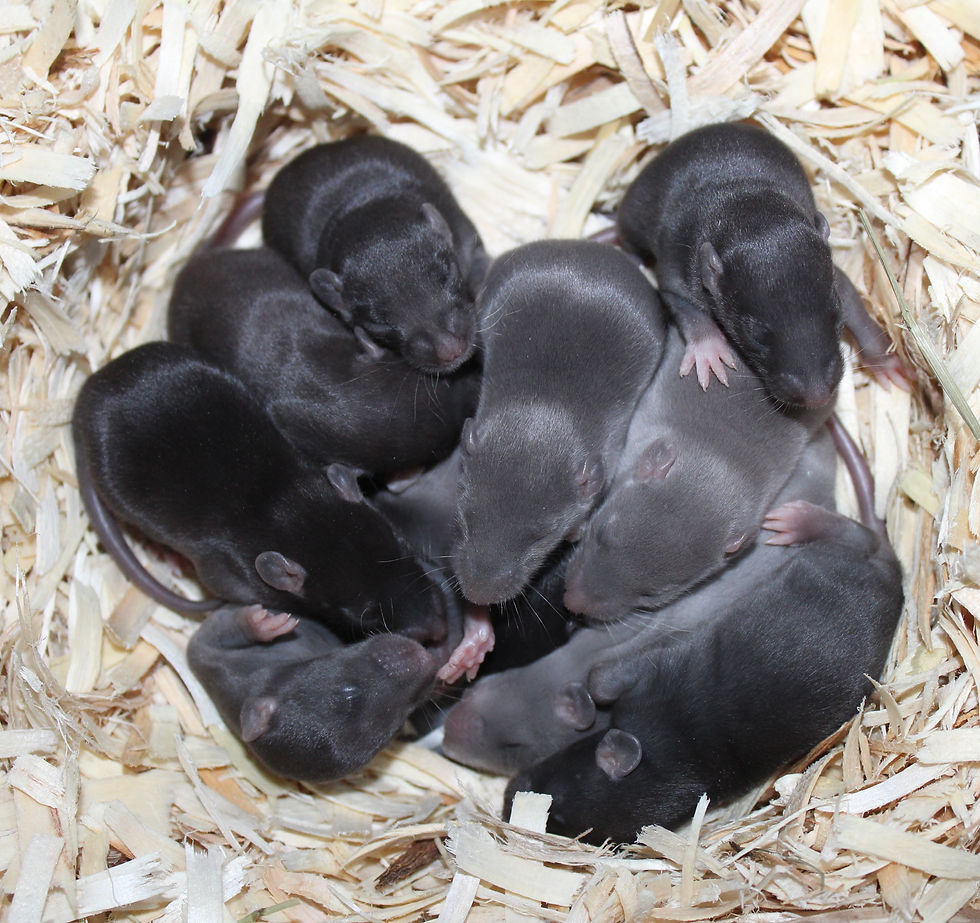How to Identify a Quality Rat Breeder: Key Traits and Considerations
- StormHaven Rattery

- Jun 10, 2025
- 3 min read
Updated: Jan 24

Choosing the right rat breeder is crucial for ensuring you bring home healthy, well-socialized pets. This decision lays the groundwork for your companionship with these intelligent creatures. With so many breeders out there, how do you find one who prioritizes the well-being of their rats? This guide will walk you through the essential traits and considerations when evaluating a quality rat breeder.
Research and Reviews
Before you even reach out to a potential breeder, conducting thorough research is key. Look for reviews from previous customers online and consider joining rat enthusiast forums where you can ask for recommendations.
When examining reviews, pay attention to comments about the animals’ health, temperament, and overall quality. If the breeder has a solid reputation among the community, it’s often a good sign.
Transparent Breeding Practices
A reputable rat breeder should be open about their breeding practices. They should willingly provide information about their breeding philosophy, which should ideally prioritize the health and socialization of their rats.
Look for breeders who emphasize responsible breeding over quantity. They should avoid inbreeding by introducing new genetic lines into their breeding program.
Animal Welfare Standards
Pay attention to the living conditions of the rats. A great breeder ensures their animals live in a clean, spacious, and stimulating environment. This contributes to the overall health and social behavior of the rats.
If you have the opportunity to visit the breeding facility, look for signs of cleanliness and appropriate care. Any reputable breeder should be happy to show you where their rats live.
Health Screening Protocols
Quality breeders conduct health screenings for their rats. They should provide health guarantees for the rats they sell and be proactive in discussing any potential genetic health issues common to the breeds they are working with.
Ask about the health checks they perform regularly. A good breeder will welcome your inquiries and provide detailed responses.
Socialization Efforts
A hallmark of a great breeder is their commitment to socializing their rats from an early age. This process begins when the rats are just a few weeks old and should continue until they are sold.
Inquire about how the breeder socializes their rats. They should expose them to various stimuli and encourage handling to ensure they grow up to be friendly and well-adjusted companions.
Knowledge and Experience
A knowledgeable breeder can be an excellent resource for first-time rat owners. They should be able to answer your questions on care, diet, behavior, and any specific needs of the breed.
Evaluate their level of experience; ideally, they should have a background in animal care or a deep understanding of breeding practices. This expertise often reflects a commitment to the welfare of their animals.
Ethical Standards
Ask the breeder about their ethical standards. A great rat breeder will adhere to high ethical standards, ensuring that their breeding practices do not exploit these animals for profit.
Keep an eye out for breeders who are involved in rat rescue or contribute to the rat community. This can be a sign that they prioritize the well-being of rats over business motives.
Return Policy
A trustworthy breeder should offer a return policy in case your circumstances change. This shows their commitment to the animals’ welfare and assures you that they want their rats to have a good home.
Inquire about their policy if you can no longer keep the rat due to unforeseen circumstances or if you encounter behavioral issues. A willingness to take the rat back demonstrates a responsible breeder.
Community Involvement
Consider finding a breeder who is active in the rat community, such as participating in local exhibitions, workshops, or rescue events. This involvement shows their dedication and care for the breed as a whole.
Breeders who participate in community events often have a wealth of knowledge and resources to share, and their commitment to rat welfare goes beyond just breeding.
Conclusion
Finding a quality rat breeder requires diligence and attention to detail. By keeping an eye out for the traits discussed, you can ensure that you are supporting ethical practices while welcoming a healthy and well-adjusted rat into your home.
Consider this guide an arsenal of tools in your search; the right breeder can significantly impact your experience as a rat owner. Being well-informed and asking the right questions will help you make the best decision for your future furry companion. Remember, investing time in identifying a quality rat breeder is an investment in the happiness and health of your new pet.



Comments